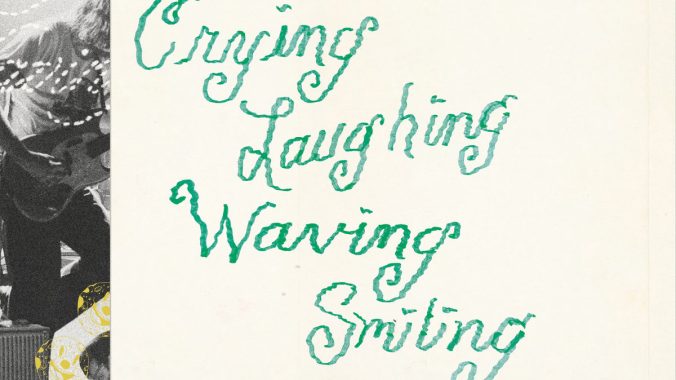Slaughter Beach, Dog Find Revelation in Distance on Crying, Laughing, Waving, Smiling
Through hypnotic, wayfaring bouts of Americana, blues and folk rock, Jake Ewald and co. turn moods, beauty and dreams into their best album yet

“The one I know isn’t here,” sings Jake Ewald, his voice laced by the twangs of a guitar. This line from “Surfin’ New Jersey” comes just a few seconds into Slaughter Beach, Dog’s new album, Crying, Laughing, Waving, Smiling. The one he’s referring to remains elusive—it could be a companion, but there’s a sense that, as the album unfolds, one’s honest self may be just as hard to access. Slaughter Beach, Dog assembled at their Philadelphia studio, The Metal Shop, in July 2022 to record their fifth LP—a collection of songs Ewald had written over the past two years, after the release of At the Moonbase on Christmas Eve 2020. The band is caring towards each song, and the result is a well-crafted, half-awake dreamscape of melodic rock—with soft indie edges and more than a little folk influence.
On Crying, Laughing, Waving, Smiling, the band starts on the outside of something and doesn’t really try to get inside—instead, they meander around out there, seeing what they can find and, from time to time, peering in through the glass. The first single—and the album’s second track—“Strange Weather,” sets up this seeking early. “How am I still unsure?” Ewald questions, across an upbeat arrangement laced with rounds of percussion and scratchy, quietly moody guitar instrumentation reminiscent of Abbey Road-era Beatles.
Slaughter Beach, Dog seem sure of their sound, at least—sometimes to a fault, as the songs here are, at times, almost in danger of blurring into one another in their sure-handedness. There’s little risk taken, but it’s hard to count that as a fault against an album that’s so comfortable within itself—and such a marvel to listen to and spend time with. The sound is consistent, but also refreshingly confident and un-self-conscious and never overworked; each of these songs knows exactly what it is.
There’s a sense of drifting across the album, a soft indie-rock escapade through city streets, small towns and diners. The songs are full of Americana imagery and richly detailed scenes vivid enough to take in—and taking them in feels incredibly easy when the music has such a gliding, soaring quality. “Engine” is one of the clearest examples—an easygoing but troubled odyssey through the desert, the woods, bars and a family reunion—as it boasts such an even-keeled rhythm of soft taps and drum beats, so much so that you might not even notice that it’s nearly nine minutes long. A confession, “The truth is I live to roll over,” tips the second half of the song into a long, brooding instrumental—mirroring the first four minutes in affect but with more friction seeping into prolonged electric guitar riffs.
-

-

-

-

-

-

-

-

-

-

-

-

-

-

-

-

-

-

-

-

-

-

-

-

-

-

-

-

-

-

-

-

-

-

-

-

-

-

-

-








































